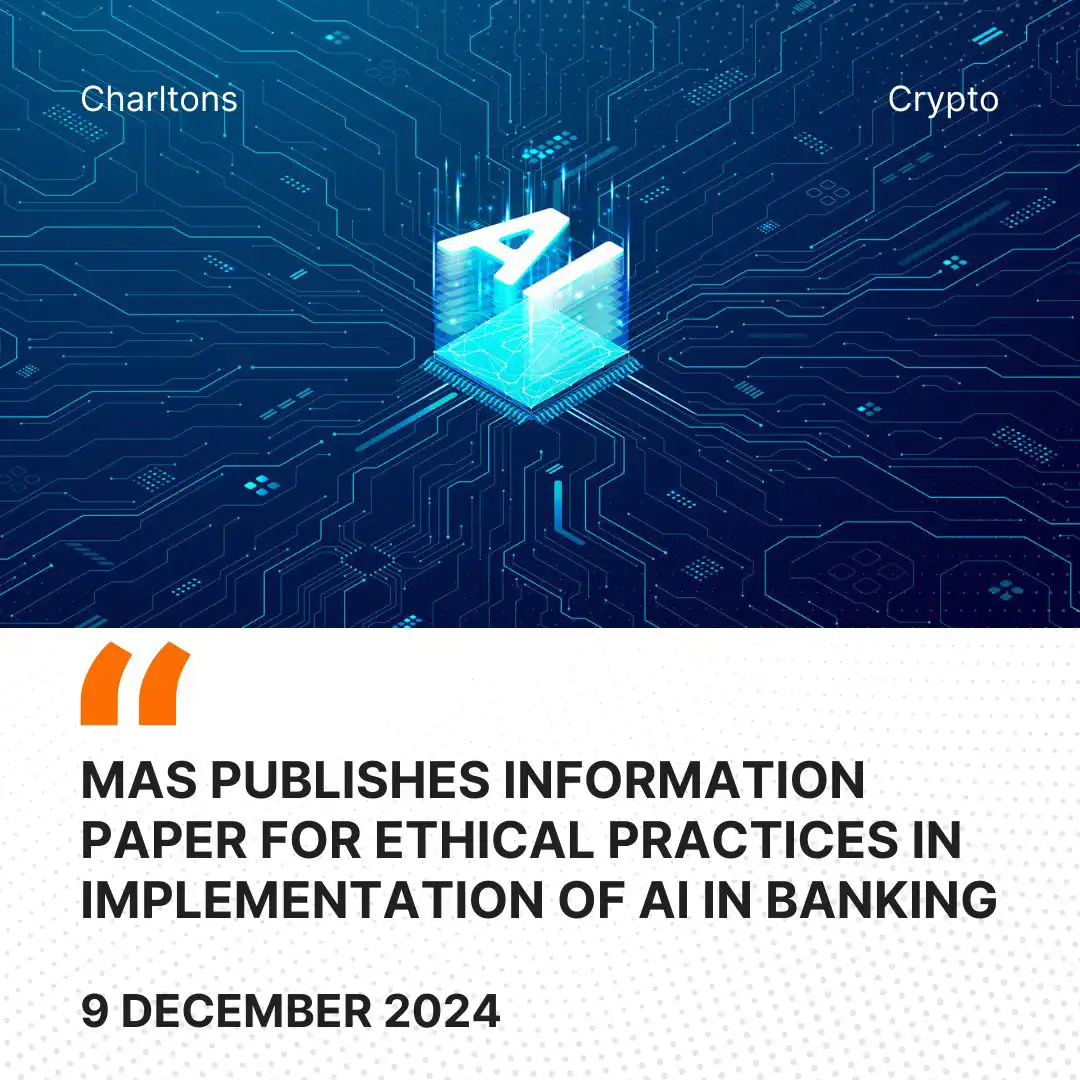
On 5 December 2024, the Monetary Authority of Singapore published an information paper outlining good and ethical practices for Artificial Intelligence (AI) and Generative AI model risk management. The paper is based on the findings of thematic review conducted in mid-2024 that evaluated AI practices across selected banks. Through this paper, MAS discusses the importance of good governance, risk management systems, and development protocols for AI and Generative AI. The authority encouraged all financial institutions to adopt these practices to ensure responsible AI deployment and innovation.
The information paper also elaborates on AI’s transformative potential in enhancing operational efficiency, customer engagement, and risk management. However, it also highlights the risks associated with its use, including financial, operational, regulatory, and reputational challenges. The review conducted in mid-2024 taken into account how banks are currently navigating these risks, with an emphasis on governance structures, oversight frameworks, and best practices for managing AI throughout its lifecycle. The AI information paper by MAS puts special attention to Generative AI due to its complexity and the risks of unpredictable behaviours.
The MAS AI Information paper states that a strong governance framework is pivotal for managing the risks associated with AI. The paper details practices such as establishing cross-functional oversight forums to ensure comprehensive risk management across the organisation. These forums aim to align policies and procedures with the evolving nature of AI technologies. MAS recommends that banks establish clear principles to guide the ethical, accountable, and transparent use of AI systems, ensuring alignment with broader organisational values.
The MAS AI Information paper discusses the importance of identifying and managing AI risks through proper systems and processes. Banks are advised by MAS to develop AI inventories to maintain a centralised view of AI usage and dependencies. Such inventories will then help ensure that AI models are only used within their approved scope and also conduct risk materiality assessments for calibrating governance efforts. These risk materiality assessmentsshould consider the impact of AI, its complexity, and the level of reliance on automated systems versus human oversight.
The MAS AI Information paper outlines standards for the development and deployment of AI to mitigate risks, which include adopting data management practices to address biases, ensure fairness, and guarantee data representativeness. The MAS AI Information paper also mandates on validation protocols, which must be comprehensive, to ensure that AI models align with their intended objectives before deployment. Post-deployment, banks should continuously monitor AI systems to detect any performance drifts or anomalies, ensuring the models remain reliable and effective over time.
Generative AI
In the MAS AI Information paper, Generative AI is identified as a promising but challenging technology due to its inherent unpredictability and complexity. The paper mandates the need for banks to adopt stricter controls and evaluation protocols for Generative AI, given its ability to process and generate unstructured data, thorough testing is essential to anticipate potential issues. The MAS AI Information paper also provides for adoption of safeguards, such as input and output filters to manage risks like hallucinations and biases. MAS AI Information paper advises banks to focus on use cases that enhance internal efficiency rather than customer-facing applications at this stage.
The MAS AI Information paper, in relation to third-party AI solutions, emphasises the importance of oversight. Banks are advised to include clear contractual terms requiring notification of updates or changes to third-party AI models. Validation and monitoring processes should be in place to ensure these solutions meet the same standards as internally developed AI.
MAS AI Information paper places emphasis on the importance of ongoing monitoring and contingency planning byregular audits and revalidation to ensure AI models continue to operate within acceptable performance thresholds. Banks are advised to establish contingency plans, including mechanisms such as “kill switches” for high-risk scenarios. The MAS AI Information paper recommends version control systems how to manage frequent updates, which will enable the Banks to track changes and ensure accountability throughout the AI lifecycle.
(Source: https://www.mas.gov.sg/publications/monographs-or-information-paper/2024/artificial-intelligence-model-risk-management, https://www.mas.gov.sg/-/media/mas-media-library/publications/monographs-or-information-paper/imd/2024/information-paper-on-ai-risk-management-final.pdf)





